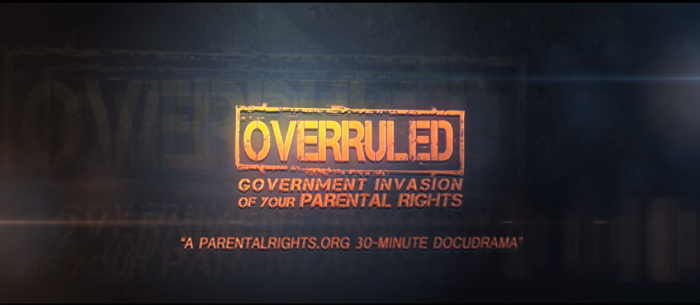WND EXCLUSIVE
FEDS ABANDON 'EQUAL RIGHTS' CLAIM TO RAISE YOUR KIDS
'Much work to be done before decades of federal overreach is reversed'
Federal officials have reversed their claim that they have “equal rights” to children to raise them, a claim that stirred outrage in many quarters of America when it was first made a few months back.
The claim originally was included in a draft policy by the U.S. Department of Health and Human Services and the Department of Education and generously allowed that parents, too, should be allowed to help raise their own children along with the government, through various programs.
The document, the “Draft Policy Statement on Family Engagement From the Early Years to the Early Grades,” stated at the time: “It is the position of the departments that all early childhood programs and schools recognize families as equal partners in improving children’s development, learning and wellness across all settings, and over the course of their children’s developmental and educational experiences.”
That one sentence, wrote William A. Estrada, the director of federal relations policy for the Home School Legal Defense Association, “unmasks the federal government’s true philosophy behind decades of federal involvement in welfare, kindergarten through 12th grade education spending and policies, programs like Head Start, and now the push to create universal early education for young children from birth through age 5: the federal government believes that its role is equal with the role of parents.”
The newest release of the statement, however, now provides that, “Families are children’s first and most important teachers, advocates, and nurturers. Strong family engagement in early childhood systems and programs is central – not supplemental – to promoting children’s healthy intellectual, physical, and social-emotional development; preparing children for school; and supporting academic achievement in elementary school and beyond. Research indicates that families’ involvement in children’s learning and development impacts lifelong health, developmental, and academic outcomes.”
The HSLDA had blasted the earlier statement, in fact, dispatching Estrada to meet with senior officials from the U.S. Department of Education and “personally” explaining the significant issues with the draft statement, including opposition from parents to the “bureaucratic arrogance.”
The change is a very mich improved version, the HSLDA pointed out, making clear that “families have strong and sustained effects on children’s learning, development, and wellness.”
“Despite this victory,” the group explained. “there are other problems with the document that remain. The document’s working definition of ‘family’ still includes not only a child’s parents or legal guardians, but ‘all adults who interact with early childhood systems in support of their child, to include biological, adoptive, and foster parents; grandparents; legal and infromal guardians; and adult siblings.’”
HSLDA exlained, “In situations where conflict may exist between a child’s parents and other family members regarding educational choices, this still quite broad definition of family is not hepful for clarity regarding parental rights in education.”
The document does still include a suggestion that families and institutions “partner” to give children better results in school.
WND reported the original plan by the government was to “systematically” engage families about their own children.
“At HSLDA, we believe that these statements reveal these agencies’ true beliefs: that a child’s God-given family does not matter. Family is whomever or whatever the government says it is,” Estrada wrote at the time.
He cited other government agendas, such as pushing the political correctness in Common Core, “dangerous U.N. treaties,” as well as suggestions for universal preschool.











































